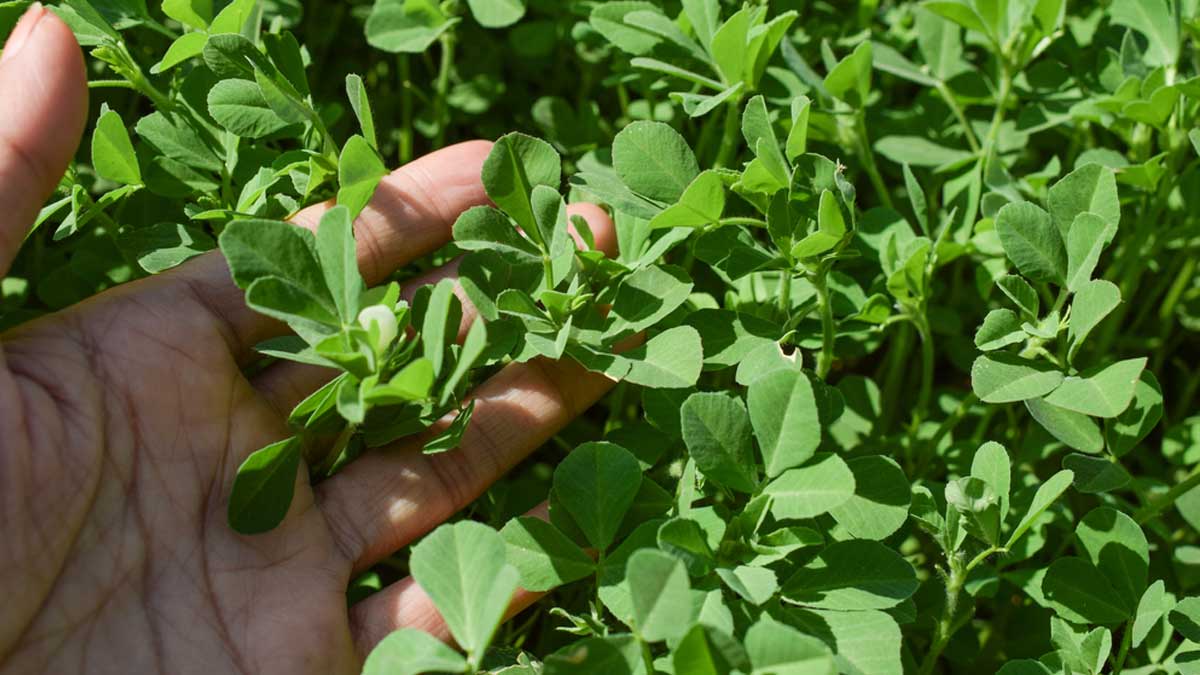
Methi, also known as fenugreek, is a versatile herb used in cooking and traditional medicine. Originating from the Mediterranean region, this plant has found its way into kitchens and health remedies worldwide. Why should you care about methi? Because it packs a punch in both flavor and health benefits. From spicing up your dishes to potentially lowering blood sugar levels, methi is a powerhouse. Imagine adding a sprinkle of these seeds to your curry or tea and reaping numerous benefits. Curious about what else methi can do? Read on to discover 20 fascinating facts about this incredible herb.
Key Takeaways:
- Methionine is an essential amino acid that the body needs for growth, repair, and energy. It's found in foods like eggs, fish, meat, and nuts, and supports liver function and antioxidant protection.
- Methionine plays a crucial role in metabolism, helping with DNA repair, antioxidant production, and energy transport. It's important for overall health and can be found in a variety of foods.
What is Methionine?
Methionine is an essential amino acid, meaning the body cannot produce it on its own. It must be obtained through diet. This amino acid plays a crucial role in various bodily functions.
-
Methionine is a building block for proteins. Proteins are essential for growth, repair, and maintenance of tissues.
-
It contains sulfur, which helps in the synthesis of other important molecules like cysteine and taurine.
-
Methionine is involved in the production of creatine, a compound that provides energy to muscles.
-
It helps in the formation of cartilage by aiding in the production of sulfur-containing compounds.
-
Methionine is a precursor to S-adenosylmethionine (SAMe), a compound involved in immune function, mood regulation, and liver health.
Dietary Sources of Methionine
To ensure adequate intake, it's important to know which foods are rich in methionine. Here are some common sources.
-
Eggs are one of the best sources of methionine, providing a complete amino acid profile.
-
Fish, especially salmon and tuna, are rich in methionine and other essential nutrients.
-
Meat, including beef, chicken, and pork, contains high levels of methionine.
-
Dairy products like milk, cheese, and yogurt also provide a good amount of this amino acid.
-
Nuts and seeds, such as Brazil nuts and sesame seeds, are plant-based sources of methionine.
Health Benefits of Methionine
Methionine offers several health benefits, making it an important part of a balanced diet.
-
It supports liver function by aiding in the detoxification process.
-
Methionine helps in the breakdown of fats, preventing fat accumulation in the liver and arteries.
-
It has antioxidant properties, protecting cells from damage caused by free radicals.
-
Methionine can improve skin tone and elasticity by supporting collagen production.
-
It may help in reducing the risk of chronic diseases like heart disease and certain cancers.
Methionine in Metabolism
Methionine plays a significant role in various metabolic processes within the body.
-
It is involved in the methylation process, which is crucial for DNA replication and repair.
-
Methionine helps in the synthesis of glutathione, an important antioxidant that protects cells from oxidative stress.
-
It aids in the metabolism of other amino acids, ensuring a balanced amino acid pool in the body.
-
Methionine is essential for the production of carnitine, a compound that helps in the transport of fatty acids into mitochondria for energy production.
-
It supports the synthesis of polyamines, which are important for cell growth and differentiation.
Final Thoughts on Methicillin
Methicillin, a pioneering antibiotic, changed the game in fighting bacterial infections. Developed in the 1950s, it was a powerful weapon against penicillin-resistant Staphylococcus aureus. However, its overuse led to the rise of methicillin-resistant Staphylococcus aureus (MRSA), a superbug that's tough to treat.
Despite its decline in use, methicillin's legacy lives on. It paved the way for newer antibiotics and highlighted the importance of responsible antibiotic use. Understanding methicillin's history helps us appreciate the delicate balance in antibiotic development and resistance.
So, next time you hear about MRSA or antibiotic resistance, remember methicillin's story. It's a reminder of both the power and limitations of antibiotics. Stay informed, use antibiotics wisely, and let's work together to combat antibiotic resistance.
Frequently Asked Questions
Was this page helpful?
Our commitment to delivering trustworthy and engaging content is at the heart of what we do. Each fact on our site is contributed by real users like you, bringing a wealth of diverse insights and information. To ensure the highest standards of accuracy and reliability, our dedicated editors meticulously review each submission. This process guarantees that the facts we share are not only fascinating but also credible. Trust in our commitment to quality and authenticity as you explore and learn with us.


